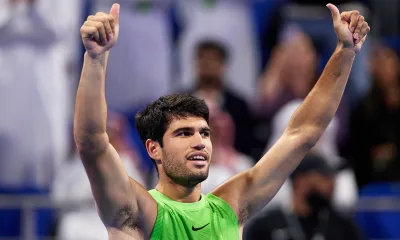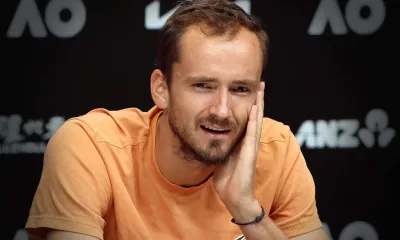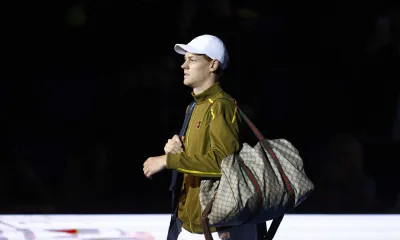ATP Player News Wimbledon
Djokovic credits ‘divine connection’ for 2019 Wimbledon final triumph
Djokovic credits a ‘divine connection’ after his 2019 Wimbledon final win over Federer. He reflected
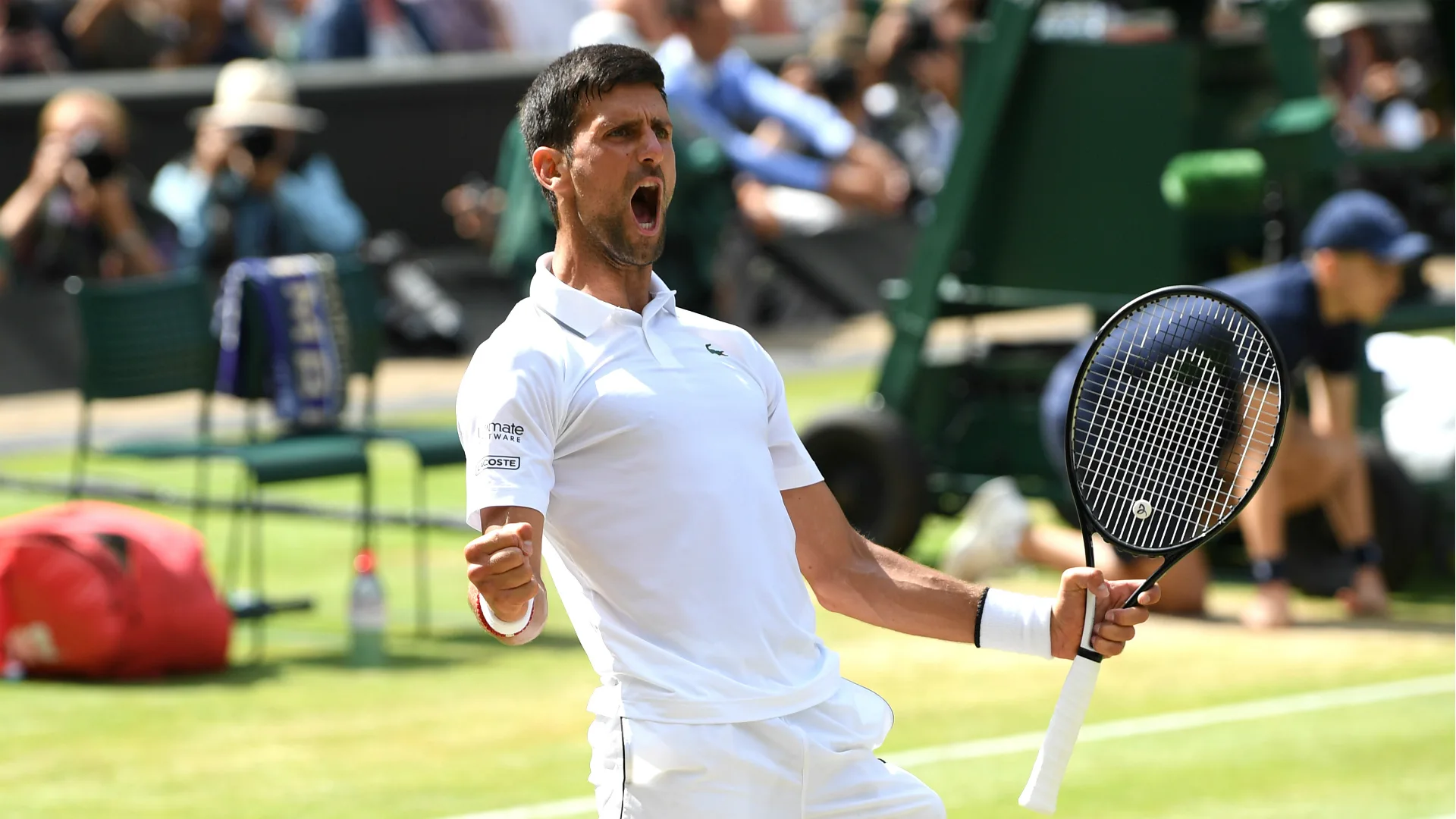
Novak Djokovic said a sense of a higher connection helped him in one of his most famous wins, the five-set victory over Roger Federer in the 2019 Wimbledon final. Speaking on the On Purpose with Jay Shetty podcast, which has over four million subscribers on YouTube, Djokovic reflected on saving two championship points before lifting the trophy.
“I really don’t know how I won certain matches,” the 24-time Grand Slam champion admitted.
“I cannot explain it, even to my team after I would finish a Grand Slam final against Roger Federer in 2019 Wimbledon, when he was the far better player.
“I saved some match points and I came off the court, all the stats were going his way, but I won the match.
“I wasn’t playing well, I wasn’t feeling well. I was just struggling, scrambling, and trying to stay out there and stay alive
“I won, in the end, in one of the most epic finals in the history of tennis. I told to my parents and my team, and my wife, that I don’t know how I won this match – I have no idea.
“At the same time, I do know that, deep inside, there is a connection happening and that there is also that help.
“It’s a mix of things, sometimes there is this divine power that – if you allow it and believe it – that really helps you come out of trouble and achieve things.”
Djokovic noted that Federer led the match in several raw metrics yet could not close it out: Federer hit 15 more aces, 40 more winners, 14 more points, and four more games. Djokovic also described the challenge of playing in a crowd that largely favoured his opponent and the mental work required to turn that energy to his advantage.
“To be able to transform and transmute that energy or that cheering that is against you to believe that it is for you,” he added.
“I was saying this years ago, after I played Federer in the Wimbledon final, they would cheer ‘Roger, Roger’ all the time, basically.
“So, I was convincing myself, and managed to convince myself in the second half of the match, that they were cheering ‘Novak, Novak’ that’s what I was hearing.
“My mind was playing games, but I wasn’t allow it to play games with me.
“I was using that as my own force and fuel, it is possible, you need to work on that, convincing yourself something that is different from what is reality that is actually happening.”
Asked about retirement and his place among the next generation, Djokovic said he still feels capable of competing with the best. “I don’t see myself fully satisfied because I have that part of me which is like, you know, I think I can still do more,” stated the former world No 1. He added that the departures of older rivals were difficult but that he aims to share his experience with young players such as Jannik Sinner and Carlos Alcaraz as the tour evolves.
ATP BNP Paribas Open Masters
From Fans to Contenders: Iva Jovic and Learner Tien’s Indian Wells Homecoming
Iva Jovic and Learner Tien grew up visiting Indian Wells and return this year as rising tour stars .
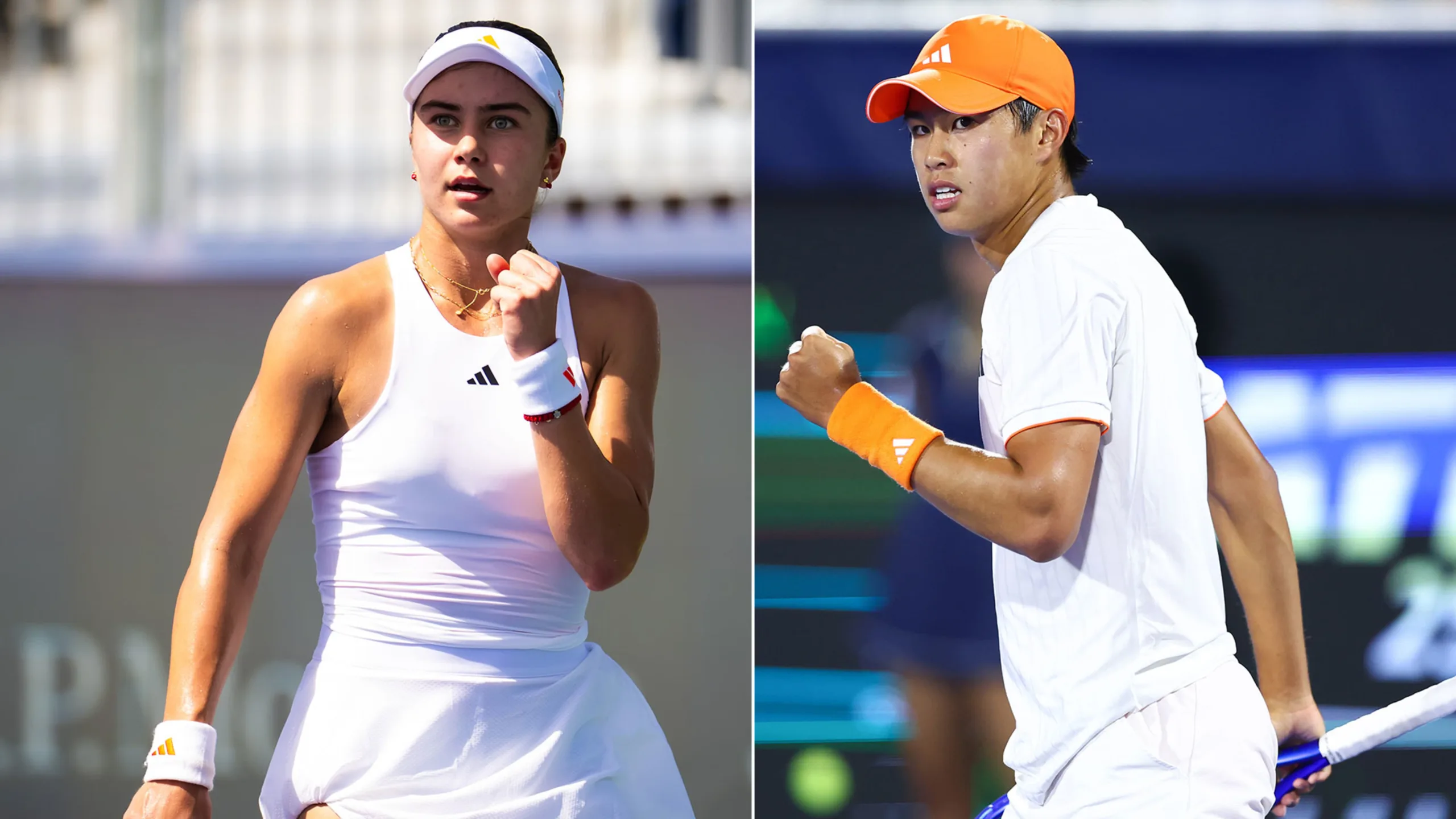
As children both Iva Jovic and Learner Tien visited Indian Wells with their families, the Tiens driving from Irvine and the Jovics from Torrance. Each arrived as a fan: Jovic waited in the sun for two and a half hours to try to get Novak Djokovic’s autograph; Tien’s earliest priority was the tournament’s frozen lemonades. “Those things are one of the greatest things ever,” he said, and he also remembers snagging a signature as Djokovic walked out of Centre Court. “I was one of the people hanging over the wall.”
Their journeys to the professional ranks have been rapid. Jovic only committed to tennis full time after the pandemic closed other sports in 2020. A year later she won the Orange Bowl and, four years after that, reached the Top 50. After an extensive pre-season working with coach Tom Gutteridge, she described the process plainly: “I took a pretty long pre-season, so I had a lot of time to get everything done.” She added, “There was a couple of specific things I was working on. There was a lot of physical stuff in the gym, a couple of technical tweaks with my ground strokes, with my serve, which took time as well.” The work showed in 2026: a final in Hobart, a first major quarterfinal in Melbourne and a 13-4 start to the season that left her ranked No. 18.
Tien’s progression has been similarly steady. After joining the tour in 2025 he displayed consistency and smart point construction, rising into the Top 30 as a rookie. By February 2026 he was at a career-high No. 23. He enlisted Michael Chang for coaching last summer to refine his serve, toss and tactics and has seen results, including a quarterfinal in Australia and a semifinal in Delray Beach. On Chang he said, “In general I think he’s very encouraging. He’s never getting down whether I’m playing well or whether I’m playing poorly. He’s always just consistently just giving me good energy, a lot of support.” He later joked, “There’s not that much video from way back then.”
Both players are second-generation Californians with immigrant family stories and compact frames — Tien 5’11, Jovic 5’7 — yet both have carved pathways that rely on craft, fitness and variety rather than sheer power. Tien will also appear in the doubles draw with Daniil Medvedev. For both, Indian Wells is a homecoming and a moment to return to the other side of the autograph line.
Abierto Mexicano Telcel ATP ATP 500
Cobolli Downs Tiafoe to Claim Acapulco Title, Poised for Career-High No. 15
Cobolli beats Tiafoe 7-6(4), 6-4 to win Acapulco; third ATP title and a projected rise to No. 15 now
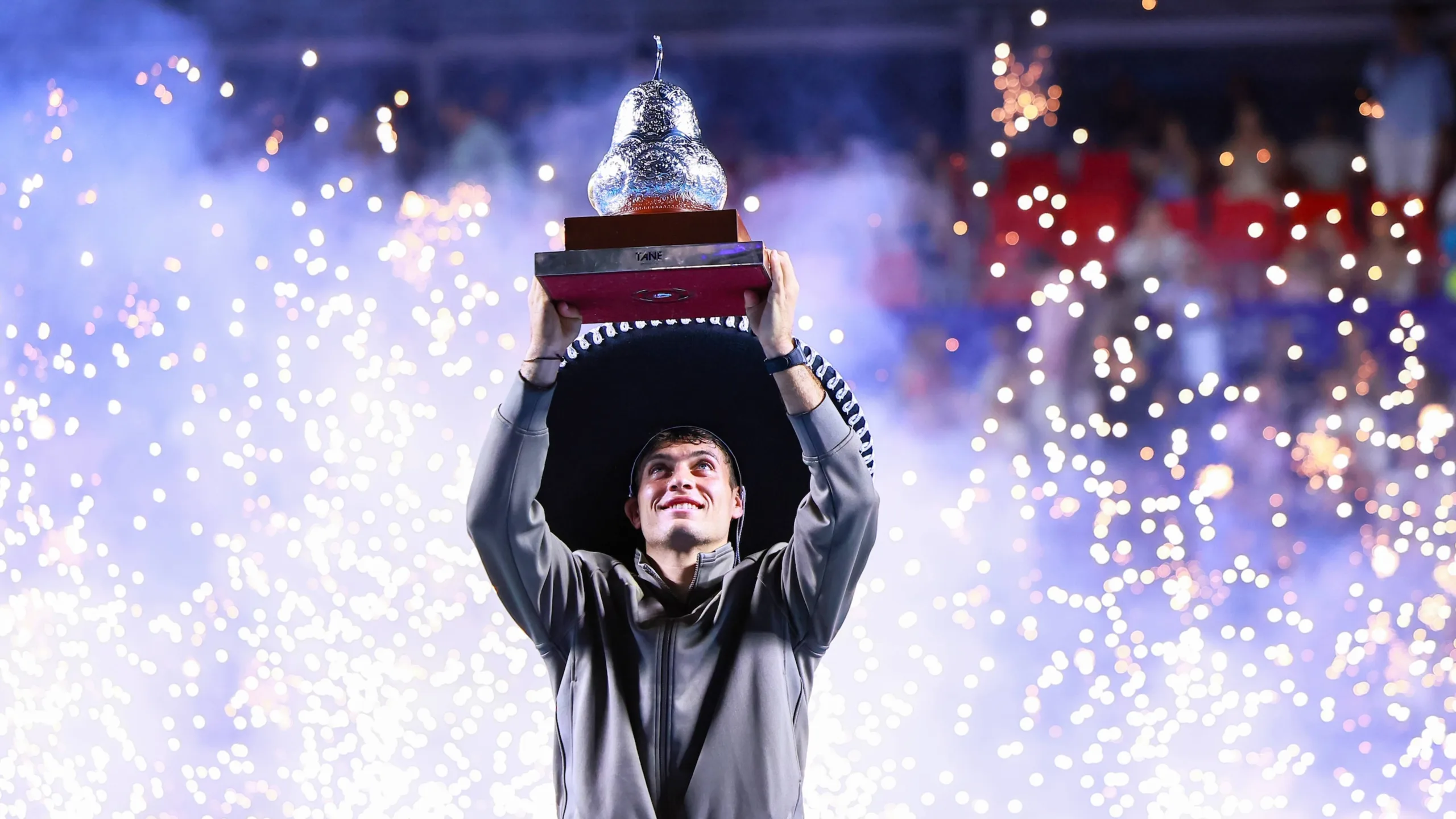
Flavio Cobolli completed a remarkable week in Acapulco with a 7-6 (4), 6-4 victory over Frances Tiafoe to lift the ATP 500 trophy. The straight-sets scoreline belies a hard-fought encounter that lasted two hours and nine minutes, with the opening set alone running 70 minutes.
The win is Cobolli’s third ATP title and matches the biggest level of his previous triumphs. His first two tour-level trophies came last year, both on clay: Bucharest, an ATP 250, and Hamburg, an ATP 500. With the rankings update on Monday, he is projected to move from No. 20 to a new career-high of No. 15, surpassing his prior peak of No. 17.
Both finalists had dramatic semifinal nights. Cobolli rallied from 3-1 down in the deciding set to beat Miomir Kecmanovic, 7-6 (5), 3-6, 6-4. Tiafoe survived an all-American duel with Brandon Nakashima, 3-6, 7-6 (6), 6-4, after Nakashima served for the match at 6-5 in the second set and then came within two points of victory at 6-all in the tiebreak.
In the final Tiafoe threatened early, holding a 3-1 advantage in the first-set tiebreak before Cobolli edged the set. Tiafoe rallied again in the second, breaking back to level at 4-all, but Cobolli closed the match by winning eight of the final 10 points, breaking for 5-4 and sealing the title with an ace, his 10th of the match.
The result also carries historical notes. At 23, Cobolli is the youngest champion in Acapulco since a 22-year-old Dominic Thiem won in 2016. He is the first Italian to capture an ATP title this year and, as the nation’s No. 3, will join countrymen Jannik Sinner and Lorenzo Musetti, currently ranked No. 2 and No. 5, in the Top 15.
ATP BNP Paribas Open Masters
Bouchard: Indian Wells an ideal stage for Ben Shelton to carry U.S. hopes
Bouchard backs Ben Shelton as top U.S. hope at Indian Wells amid Paul and Fritz challenges this week
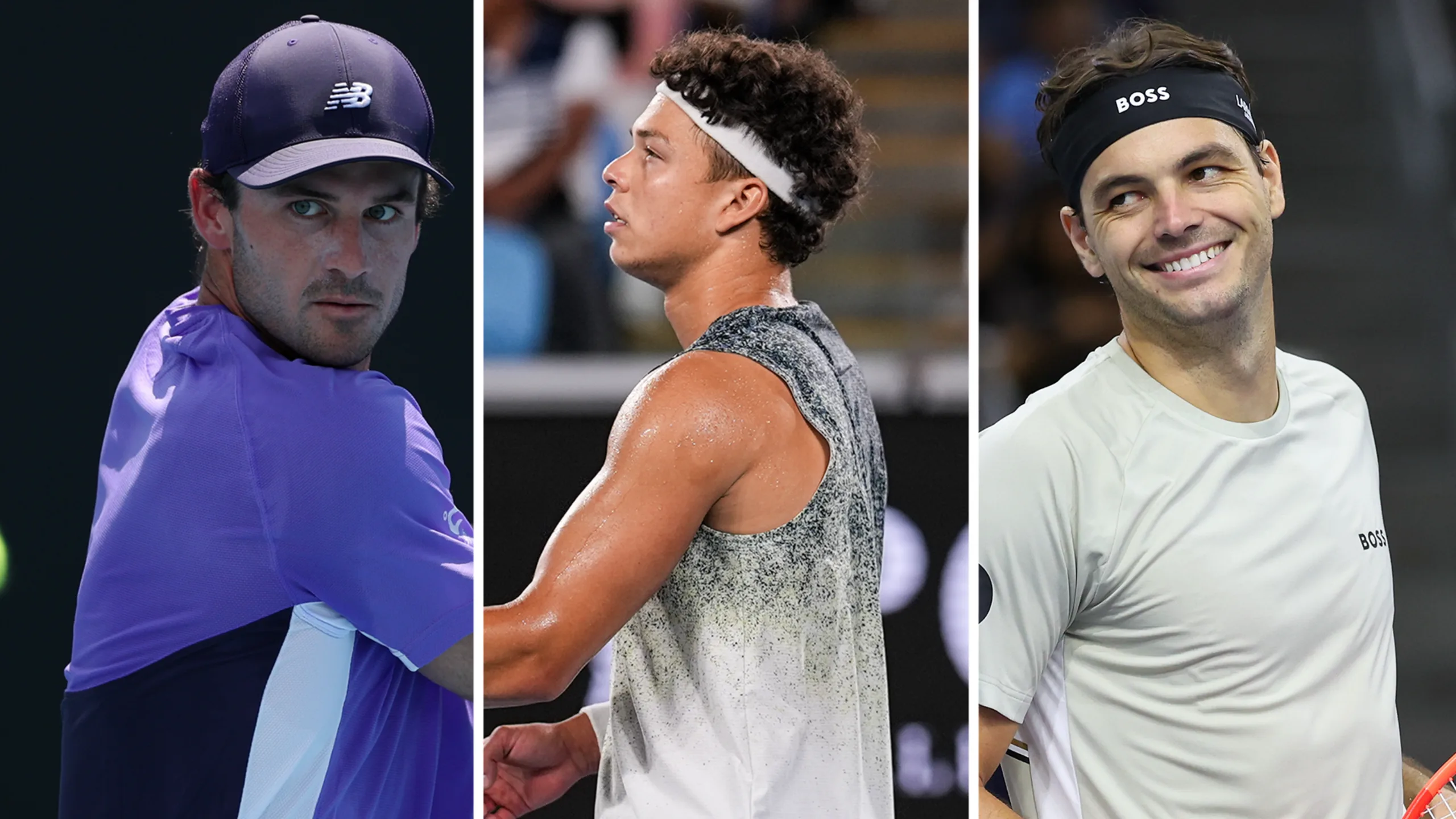
The 2026 BNP Paribas Open arrives with main-draw action beginning Wednesday, March 4, and American men figure prominently in the conversation at Tennis Paradise. Eugenie Bouchard singles out a compact group of U.S. contenders and places Ben Shelton at the center of expectations.
Ben Shelton. His game has shown clear evolution and he often lifts his level at the biggest events. With Indian Wells regarded as the premier U.S. tournament after the US Open, the setting feels appropriate for Shelton, who already won a first Masters 1000 title in Canada last summer.
Tommy Paul. After a 2025 season hampered by injury, Paul appears to have recovered and has produced a strong start to 2026. His Delray Beach win over Taylor Fritz—the only American man to win Indian Wells since Andre Agassi in 2001—was certainly a statement about his readiness to return to the Top 10 and beyond. Back to full health in Australia, he played great to reach the second week and gave Carlos Alcaraz all he could handle over three close sets in the fourth round. If he stays healthy and consistent, Paul could be the most dangerous American in the draw.
Taylor Fritz. Local support and familiarity with the event add weight to his prospects. “Total transparency: how can i go against my man in his hometown tournament? A tournament he’s the only one of his countrymen to have won before, no less.” That hometown element and previous success at the event create a compelling backdrop for his campaign.
Indian Wells will demand serve, return and stamina across large courts and long days. Between Shelton’s upward trajectory, Paul’s return to form and Fritz’s home-court narrative, the U.S. contingent arrives with several credible candidates to produce the best American result as the Sunshine Swing begins.
-
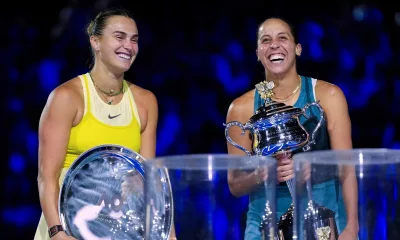
 ATPAustralian OpenGrand Slam2 months ago
ATPAustralian OpenGrand Slam2 months agoAustralian Open announces record A$111.5 million prize pool for 2026
-
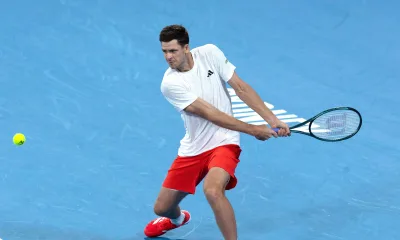
 ATPUnited CupWTA2 months ago
ATPUnited CupWTA2 months agoHurkacz edges Zverev in straight sets in United Cup return
-
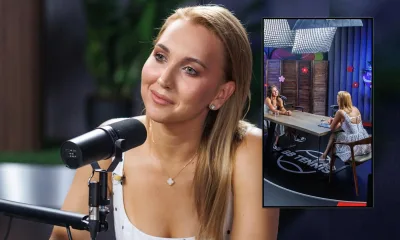
 ATPPlayer NewsWTA2 months ago
ATPPlayer NewsWTA2 months agoVesnina rejects claim that podcast aired unapproved Kudermetova anecdote about Rune


